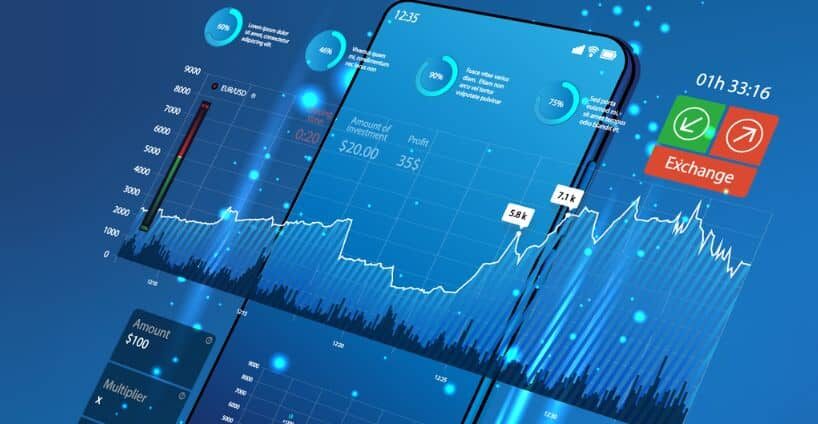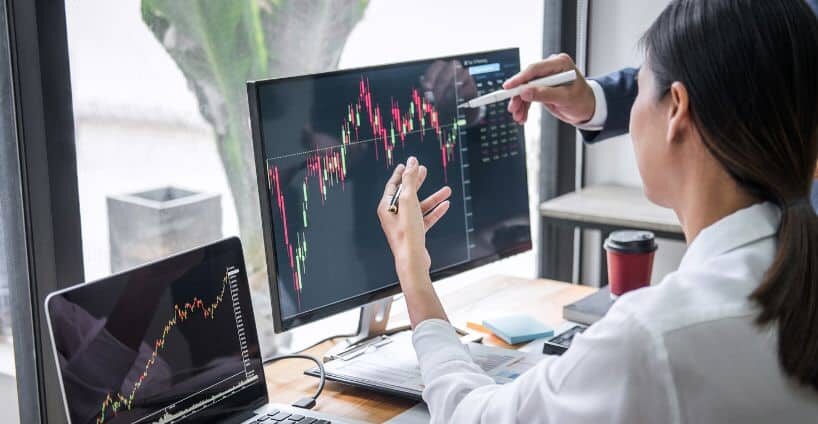The insider’s guide to forex trading and big returns in Kenya

Forex trading is a highly speculative investment that can offer big returns but also big risks. In this article, we’ll explain forex trading and outline the opportunities available in Kenya. We’ll then provide a brief overview of the purpose of this article and why forex traders may be interested in investing in Kenya. Finally, we’ll give you an overview of some of the most popular forex brokers and how to get started with forex trading in Kenya.
Forex (foreign exchange) trading involves buying and selling currencies directly on global exchanges. Forex traders use these exchanges to buy or sell currencies based on their expectations for future changes in currency values. This speculation can generate huge profits but also huge losses.
Understanding Forex Market
Forex trading is the simultaneous purchase and sale of foreign currency, also known as FX. Forex traders profit by buying currencies when they are low and selling them when they are high. The key players in the Forex market include:
1) Central Banks – These institutions hold significant foreign currency reserves, which can be traded on the forex market.
2) Brokers – These companies provide services to forex traders, including information about the currency markets, brokerage accounts, and margin loans.
3) Traders – Individuals or firms that trade currencies on the forex markets.
4) Futures Markets – Forex futures are contracts allowing investors to speculate on future exchange rates between two currencies.
There are several reasons why forex brokers may want to invest in forex trading:
- Forex trading can be a very fast way to make money. Large swings in currency prices can happen quickly, so it’s possible to make a lot of money by taking advantage of these movements.
- Forex trading is riskless. You don’t have to put your own money at risk – you only need to trust that the market will behave as you expect it to.
- You can make big returns with little initial investment. Many successful forex traders start by simply day trading, monitoring the market, and making small transactions. If you stick with this approach, you can eventually make serious money by trading larger amounts of currency.
- Forex trading is global. This means that you can trade anywhere in the world.
Essential Forex Trading Tools and Strategies
Trading Platforms
There are several different forex trading platforms available online. Some popular ones include FXCM, fx street, IG, and TradingView. The choice of the best forex brokers in Kenya is ultimately down to personal preference and the level of sophistication desired by the traders.
Technical Analysis Tools
Technical analysis uses charts and graphs to identify patterns in market movements and make predictions about future prices. Common technical analysis tools used in forex trading include moving averages (MA), Relative Strength Index (RSI), Fibonacci retracement levels, momentum indicators, and volume indicators.
It is important to be aware of the risks involved in Forex trading and to use caution when making forecasts about future prices. Forex traders must also carefully manage their risk exposure through proper risk management strategies. Popular forex trading strategies employed by forex traders include trend following, scalping, and long-term investing.
Importance of Risk Management
Risk management is one key element of successful forex trading. Forex traders need to assess their risk tolerance, understand the various risks associated with Forex trading, and implement sound risk management practices accordingly. Some common risks associated with Forex trading are market volatility, counterparty risk, trade loss risk, and trade execution risk.
Maximizing Returns in Kenya
Forex trading in Kenya is a highly speculative market and can be quite volatile. Successful forex traders must read and understand the markets, stay aware of potential risks, and take advantage of market events.
The Kenyan Forex market comprises three main currency pairs: the US dollar/Kenyan shilling, the euro/Kenyan shilling, and the British pound/Kenyan shilling. The Kenyan Forex market is open daily from 6:00 am to 4:00 pm local time.
Trading in Kenya is typically done on regulated forex brokers, which offer a range of different trading platforms with various features. These brokerages provide client support, 24/7 chat support, and comprehensive analytics that help traders make better decisions. Many forex traders use technical analysis to make investment decisions, while others focus on fundamentals such as economic indicators and news events.
There are several risks associated with forex trading in Kenya, including foreign exchange rate, volatility, fraud and scamming, investing too much money into a trade without understanding it fully, incorrect assumptions about fundamental data (such as GDP growth rates), and getting drawn into politics or regional conflicts. To reduce these risks, traders should exercise caution when starting in the forex market and always do their research before making any decisions. They should also keep track of their account balance and performance regularly to ensure they are making informed forex trading decisions.
Conclusion
This article has discussed the advantages of forex trading in Kenya and how to make big profits. Forex trading is a highly profitable investment strategy that can provide significant returns over short periods.
There are several key things you need to know before starting forex trading in Kenya:
Here are some final thoughts and recommendations on forex trading in Kenya:
1) Understand the Currency Pairs and Their Associated Risks: The most important thing you need to do before starting forex trading is to understand the currency pairs and their associated risks. Make sure you understand what each currency is worth vs. other currencies, as well as the historical volatility of those currencies. This will help you tailor your trade strategies accordingly.
2) Stay Up-to-Date on Market Trends: It is also important to stay up-to-date on market trends to capitalize on any opportunities that may arise. Pay close attention to news events and economic indicators, as these can impact prices dramatically.
3) Have a Solid Plan for Executing Your Trades: Finally, ensure you have a solid plan for executing your trades. Make sure you have charts, indicators, and other tools to make informed trading decisions.



